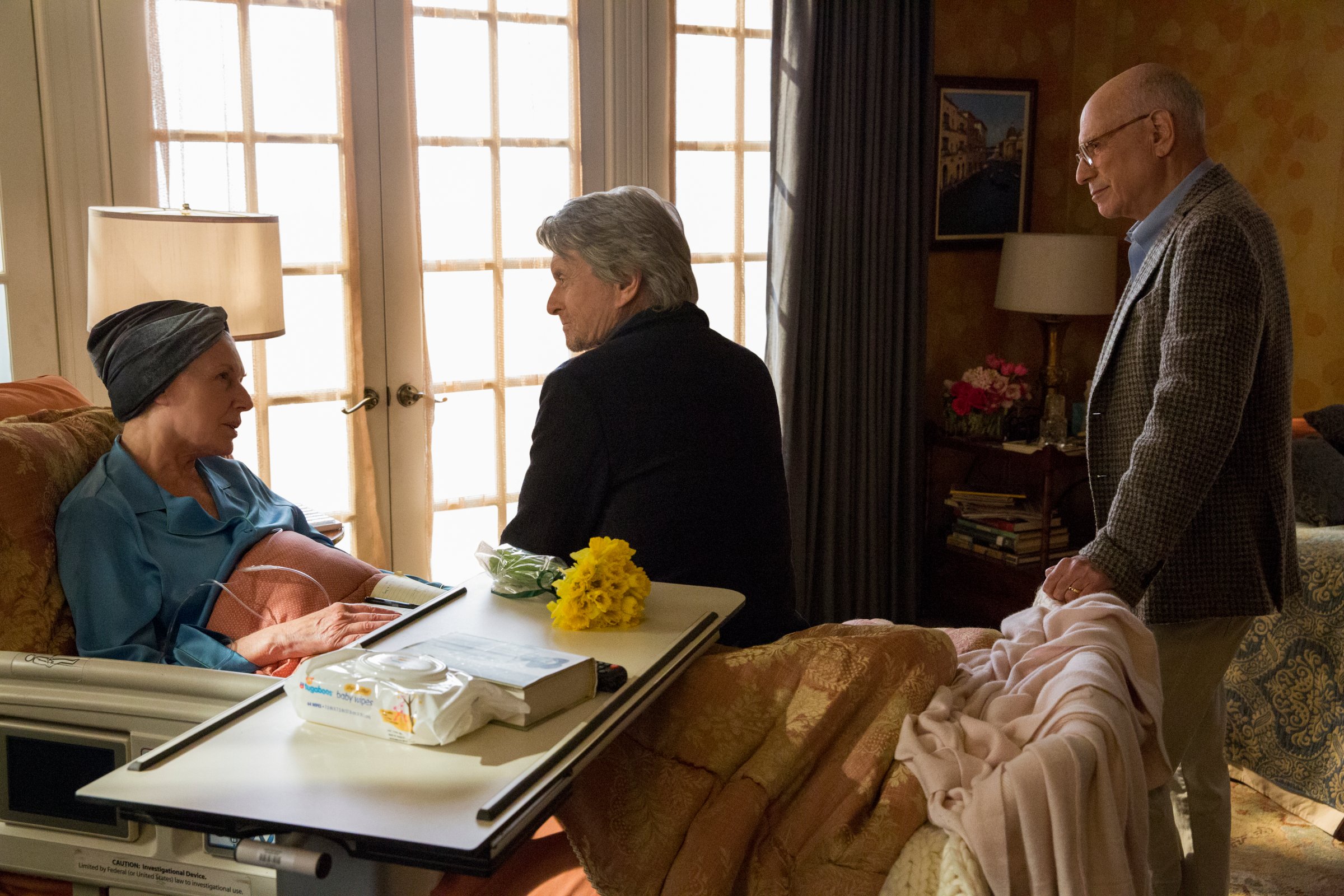
For more than two decades, Chuck Lorre has been one of the most powerful names in television. Though he didn’t last long in his career-making gig as a Roseanne writer, he survived that show’s chaotic set to create some of the biggest sitcoms of the 1990s: Grace Under Fire, Cybill, Dharma & Greg. A few years later, as reality TV reshaped primetime and original cable programming started to eat into broadcast networks’ audience shares, he stuck to his tried-and-true formula. As Fox and NBC aired high-concept single-camera comedies that critics loved but most viewers ignored, Lorre scored hits for CBS with shows like Two and a Half Men and The Big Bang Theory. These multicam sitcoms were built around broad characters, ubiquitous laugh tracks and living-room couches that got as much screen time as the leads.
So it was surprising when the mega-producer teamed up with Netflix for last year’s Disjointed, which looked like typical Lorre fare but starred Kathy Bates in the edgy role of a marijuana dispensary proprietor. Canceled after a two-part debut season, it was his first failed show since the ’90s. On Nov. 16, Lorre will make another bid for Netflix success with The Kominsky Method, an eight-episode series that marks his first attempt at modern prestige TV.
The show has all the superficial markers of a sophisticated product: It’s a serialized, single-camera dramedy set within a well-off Hollywood milieu and led by A-list actors Michael Douglas and Alan Arkin. Douglas’ Sandy Kominsky is an acting coach with a thriving studio, an earnest reverence for his craft, three ex-wives, no roles on the horizon and an unacknowledged terror of death that is only exacerbated by his ballooning prostate. (There are a lot of jokes about peeing.) As her terminal illness approaches its end, his friend Eileen (Susan Sullivan)—the wife of Sandy’s cantankerous agent, Norman Newlander (Arkin)—begs him to take care of her husband when she’s gone.
The setup is rich with potential for dark comedy about aging, mortality and friendship (even if Henry Winkler has already filled this year’s TV quota for washed-up acting instructors, with his Emmy-winning performance in HBO’s wonderful Barry). But Lorre and his co-writers, Al Higgins and David Javerbaum, squander it on stock supporting characters and tired, smarmy humor. Sandy’s acting class is populated by coddled millennial stereotypes. He shuts down an argument over an offensive performance by pointing out that “inside we’re all the same.” Black and gay students exist solely as representatives of their identities. And there’s no sign Lorre wants viewers to be more generous to these characters than Sandy is.
Worst of all are Lorre’s underwritten female characters. Sandy’s grown-up daughter Mindy (Sarah Baker), who helps run the studio, evidently lives to care for her dad; if she has her own friends, romances or ambitions, we don’t find out about them. His love interest, Lisa (Nancy Travis), is a long-suffering divorcée defined by the disappointments she’s suffered at the hands of men. Eileen is a “perfect wife” character with no internal life. The only woman with a discernible personality is Norman and Eileen’s middle-aged daughter, Phoebe (Lisa Edelstein), a nastily rendered caricature of a spoiled, pill-addicted brat.
The show isn’t a total bust. The stars lend real poignancy to each man’s plight, and to their testy friendship, but their performances can’t compensate for the lazy writing. Even with prestige trappings, The Kominsky Method just feels cheap.
More Must-Reads from TIME
- Donald Trump Is TIME's 2024 Person of the Year
- Why We Chose Trump as Person of the Year
- Is Intermittent Fasting Good or Bad for You?
- The 100 Must-Read Books of 2024
- The 20 Best Christmas TV Episodes
- Column: If Optimism Feels Ridiculous Now, Try Hope
- The Future of Climate Action Is Trade Policy
- Merle Bombardieri Is Helping People Make the Baby Decision
Contact us at letters@time.com